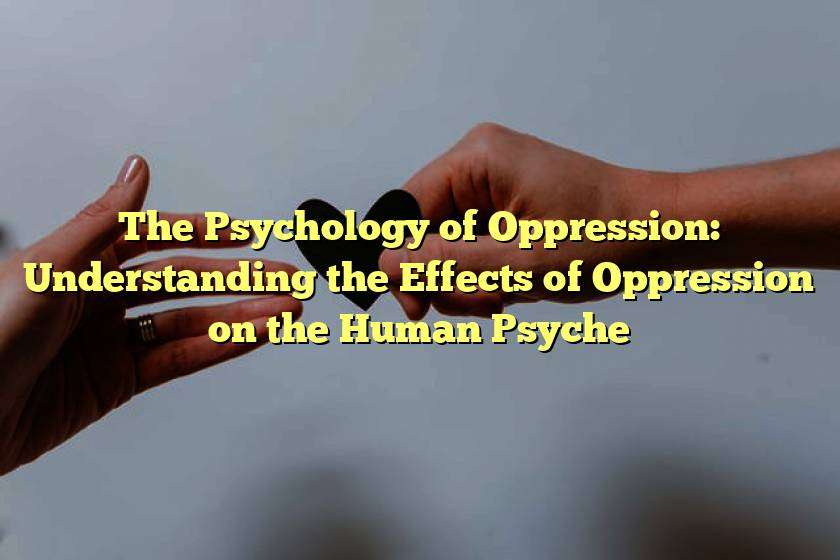Oppression is a term that refers to the exercise of power and authority in a cruel and unjust manner that seeks to dominate and subjugate others. Oppression can take many forms, ranging from institutional racism to gender discrimination, to economic exploitation. The effects of oppression on the human psyche are vast and complex, and they can have serious implications for the overall well-being of individuals and communities.
Understanding Oppression
Oppression involves the use of power by those in authority to deny others access to opportunities, resources, and basic human rights. It can take many forms, such as police brutality, systemic racism, and discrimination against marginalized groups. Regardless of the form it takes, oppression psychologically and emotionally undermines the individual’s sense of self and their ability to function as a whole person.
The Effects of Oppression on the Human Psyche
Oppression can have profound psychological effects on its victims, such as mental health issues, low self-esteem, and social exclusion. It can also manifest in physical ailments such as anxiety, depression, and even suicidal tendencies. In many cases, the effects of oppression can be long-lasting and can have serious impacts on the mind and body.
One study conducted by the American Psychological Association linked exposure to racism with higher rates of depression and anxiety in African American and Latinx communities. Furthermore, those who experienced racism were also more likely to suffer from chronic health conditions such as hypertension and diabetes.
Coping with Oppression
When it comes to coping with oppression, it’s important to understand that everyone’s experiences are different, and no two people will react to oppression in the same way. While some people may choose to speak out against oppression, others may choose to withdraw and cope in other ways. It’s essential to recognize that there are no ‘right’ or ‘wrong’ ways to cope with oppression. Still, seeking out supportive environments and engaging in self-care activities can be a helpful way to mitigate the psychological effects of oppression.
Conclusion
Oppression is a complex and multifaceted issue that negatively impacts the individual’s psychological and emotional well-being, leading to physical and mental health issues. Understanding the roots and effects of oppression on the human psyche is essential when seeking to address and there is no single right way to cope. Still, by fostering a supportive environment and engaging in self-care activities, individuals can better manage the psychological impact of oppression. It is high time that people become more aware of the devastating effects of oppression and work together to create a society that is just and inclusive for people of all backgrounds.



